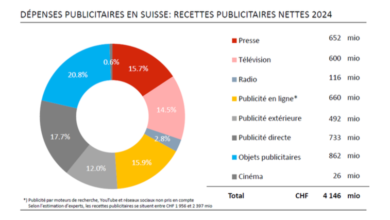Good news from Cannes
 When Homer recited the Iliad, it was full of nostalgia for heroes of yore, much unlike the mortals of his own times. When the last ruler of the Classical World, Emperor Hadrian, extolled the beauty of Greek art, his was an ancient ideal standing up to the vulgar reality of his Roman contemporaries. When Hollywood released “The Giants”, it told a story of men and women whose stature much surpassed the suburban America of the 50s. And in the late 90s Marcello Mastroiani reflected in an interview ( I quote by memory): “You used to go to the cinema and see them larger than life: Greta Garbo, Clark Gable, John Wayne. Their faces were huge, looming above you. Now we see everything on a TV screen, and it’s so small. The actors have become tiny… piccolo, piccolo”.
When Homer recited the Iliad, it was full of nostalgia for heroes of yore, much unlike the mortals of his own times. When the last ruler of the Classical World, Emperor Hadrian, extolled the beauty of Greek art, his was an ancient ideal standing up to the vulgar reality of his Roman contemporaries. When Hollywood released “The Giants”, it told a story of men and women whose stature much surpassed the suburban America of the 50s. And in the late 90s Marcello Mastroiani reflected in an interview ( I quote by memory): “You used to go to the cinema and see them larger than life: Greta Garbo, Clark Gable, John Wayne. Their faces were huge, looming above you. Now we see everything on a TV screen, and it’s so small. The actors have become tiny… piccolo, piccolo”.
Sitting in the bar of Cannes Majestic hotel, surrounded by photos of cinema’s black and white past, one cannot help but wonder whether the self-perpetuating downward spiral of our culture will ever hit the bottom.
Yet, triumphantly, I present you an exception to the rule— television. This reassuring vision came to me at the MIPCOM TV market last week.
Television had never intended to be a place for giants. It is one of those spectacular cultural phenomena, which started at the very bottom, and therefore cannot get any worse. Would you cry for “I Love Lucy” as opposed to “Desperate Housewives”. Would you say that “Miami Vice” was epic compared to “24”? As early as the 50s Hitchcock chillingly commented “Television brought murder back into the home, where it belongs” And Orson Wells quipped, “I hate TV. I hate it as much as peanuts. But I can’t stop eating peanuts”.
The beauty of a medium starting so low, is that it can only evolve. Unfortunately, for most of its life so far, TV had been evolving at the same level — twitching and turning as it tries to gauge the tastes of the lowest common denominator. MIPCOM is a great reflection of this supposed “evolution”. What can you possibly think of a TV market whose highlight is “The Mobile TV awards”? What will it be next year: “Best of YouTube”?
The industry is desperately trying to find a compass, which would guide it into the safe waters of steady ratings and guaranteed ad revenues – yet the ratings are slipping, and the North is spinning with vertiginous speed.
No need to be alarmed: TV is going through growing pains. It is about to get better, because a mindless consumer is no more. Having served soap-buying housewives and beer-drinking couch potatoes over the past decades, a TV programmer is suddenly faced with an individual who turns on the tube in-between strutting on Facebook, grooving to iTunes and consulting Wikipedia on just about anything. Moreover, having turned on the box, he actually can record the shows he wants to watch, buy programs on-demand, or get bored and go have fun in Second Life.
This is why for the first time at MIPCOM I have noticed a strange awareness of consumer choice – a truly new concept for a TV market. It has become painfully clear to TV professionals that they need to compete for an audience share across all media: TV, Internet, mobile. Ergo the Mobile TV awards – not the smartest approach, in my mind, to defending the stronger points of TV.
For, no matter how critical the cultural establishment has been of TV since it very birth, it does have strong points: across the world, next to low-brow fluff and reality shows, it turns out some of the most creative productions, provides exposure to all that’s meaningful in our culture and nurtures talent in great numbers. The on-demand world will only help these qualities of TV blossom, making more space for high-end content and keeping TV execs on their toes – not unlike magazine editors and book publishers.
But let us not rejoice too fast. For, as TV is getting better, it is doing so at the time of another cultural phenomenon – the unleashed consumer, the digital narcissist, the pandemic of blogs and personal TV shows, the crumbling world of distinctions, and the frightening idea that anyone can broadcast himself. So don’t be surprised if one day we mourn the epic skills of Oprah, or wish that someone was as great as Larry King.





